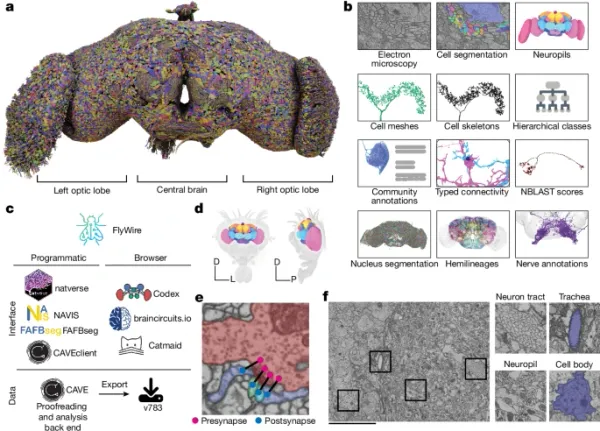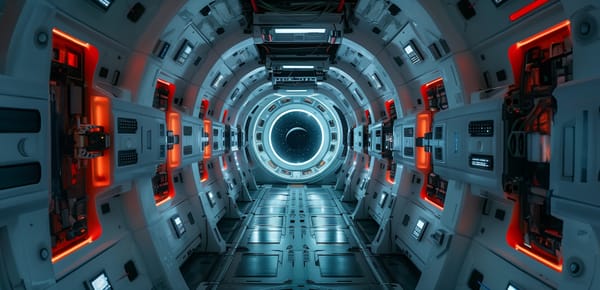How The Expanse Predicts the Future of Medicine: Are We Close?
Table of Content
If you’re a fan of science fiction and haven’t watched The Expanse yet, you’re missing out on what could arguably be one of the most well-crafted and scientifically grounded space operas of our time.
This critically acclaimed series is based on the books by James S.A. Corey and has earned a reputation for its rich storytelling, compelling characters, and unparalleled attention to realism.
Here’s why The Expanse deserves your attention, whether you’re a hardcore sci-fi enthusiast or a casual viewer looking for something engaging.
But First, What The Expanse Is All About
Set in a future where humanity has colonized the Solar System, The Expanse masterfully weaves together politics, intrigue, and survival in space. The narrative revolves around three major factions:
- Earth, ruled by the United Nations and struggling with overpopulation and resource management.
- Mars, an independent militarized power with dreams of terraforming its planet.
- The Belt, home to the working-class "Belters," who mine resources in the asteroid belt and live under constant oppression.
Now, lets talk medicine Sci-fi:
The future of medicine in The Expanse captivates audiences not only because of its thrilling narrative but also because of its advanced healthcare technologies. From treatments for radiation poisoning to growing body parts, the series offers a glimpse into a world where science has pushed the boundaries of human capability.
But how much of this is rooted in reality, and how much is speculative? Let’s break it down and explore the connection between The Expanse’s vision and real-world medical advancements.
Radiation Poisoning Treatments: Closer Than You Think
Radiation is a real and present danger in space exploration, and The Expanse addresses it with futuristic medications that repair cellular damage from radiation exposure.
While today’s treatments, like potassium iodide or Prussian blue, can mitigate some effects of radiation poisoning, they don't "heal" damage the way the show suggests.
However, there are promising developments in radioprotective agents:
- Nanoparticle therapies are being researched to target and repair damaged cells.
- Advances in DNA repair mechanisms could one day lead to treatments capable of reversing radiation damage, much like those in The Expanse.
Realistically, these advancements are decades away but entirely within the realm of possibility.
Holographic Medical Interfaces: Real, but Limited
The sleek holographic displays in The Expanse—used for diagnostics, surgery planning, and monitoring—might seem like science fiction, but they are rooted in modern technology trends:
- Augmented reality (AR) and virtual reality (VR) tools are already used in surgery to provide 3D visualizations of internal anatomy.
- Companies like Microsoft and Magic Leap are developing wearable devices for holographic displays in medical applications.
While today’s versions are clunkier than the show’s elegant setups, ongoing developments suggest that fully interactive holographic systems are a natural evolution of current technology.
Health Trackers and Biosensors: Already Here
Wearable health trackers in The Expanse monitor vital signs, oxygen levels, and even radiation exposure in real-time. These devices are almost indistinguishable from modern technology:
- Smartwatches from Apple and Garmin track vitals like heart rate, oxygen saturation, and even ECG readings.
- Implantable biosensors are being developed to continuously monitor blood glucose, hormones, and other biomarkers.
The leap to devices capable of tracking advanced parameters, such as radiation or cellular repair, is a logical next step.
Growing Body Parts: Sci-Fi Meets Reality
One of the most futuristic aspects of The Expanse is the ability to grow and replace body parts. In the last few episodes, characters benefit from what appears to be near-instant regeneration of limbs and organs. While this might feel far-fetched, it aligns with real-world advancements in regenerative medicine:
- Lab-grown organs: Scientists have successfully grown bladders, tracheas, and even heart tissues using stem cells.
- Bioprinting: 3D bioprinters can now print complex tissues like skin and blood vessels, with researchers working on larger organs like livers and kidneys.
- Gene editing: Tools like CRISPR could one day enable us to stimulate regenerative capabilities in humans, inspired by animals like salamanders that can regrow limbs.
The immediate and seamless regeneration shown in The Expanse remains speculative, but it reflects a plausible future trajectory for medicine.
The Science of Speculation: How Sci-Fi Shapes Reality
Science fiction has a long history of inspiring real-world innovation. Technologies like cell phones, voice assistants, and robotic surgery all trace their conceptual roots to sci-fi.
In The Expanse, the medical advancements not only serve the narrative but also spark conversations about what could be possible.
What Does This Mean for Our Future?
- Inspiration for Innovation: Shows like The Expanse challenge scientists and engineers to think beyond current limitations.
- Ethical Questions: The ability to grow organs or repair radiation damage raises questions about access and equity. Will these technologies be available to everyone, or only the wealthy?
- Shifting Paradigms: As these technologies become real, they could fundamentally alter our understanding of health, aging, and mortality.
Predictions: The Next Frontier of Medicine
- Radiation-Resistant Human Enhancements: Expect treatments within the next 20–30 years that can prevent or repair radiation damage at the cellular level.
- Bioprinted Organs: Within 10–15 years, we may see bioprinted kidneys and livers available for transplant, reducing the need for donors.
- AI-Powered Diagnostics: Holographic medical interfaces powered by AI could become the norm in hospitals within a few decades.
- Wearable Revolution: Biosensors capable of monitoring complex biomarkers will become essential for both space travelers and Earth-based healthcare.

Why The Expanse Matters
The medical advancements in The Expanse are not just thrilling ideas—they are roadmaps for what humanity could achieve.
By blending scientific realism with visionary storytelling, the show challenges us to imagine a future where health isn't just about survival but about thriving in even the most extreme environments. Sci-fi doesn't just predict the future—it helps create it.
Let’s hope we’re ready when the future catches up.












